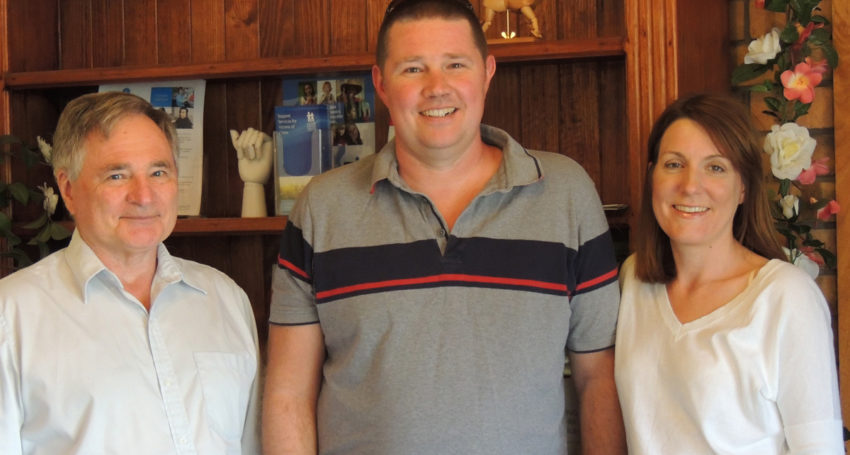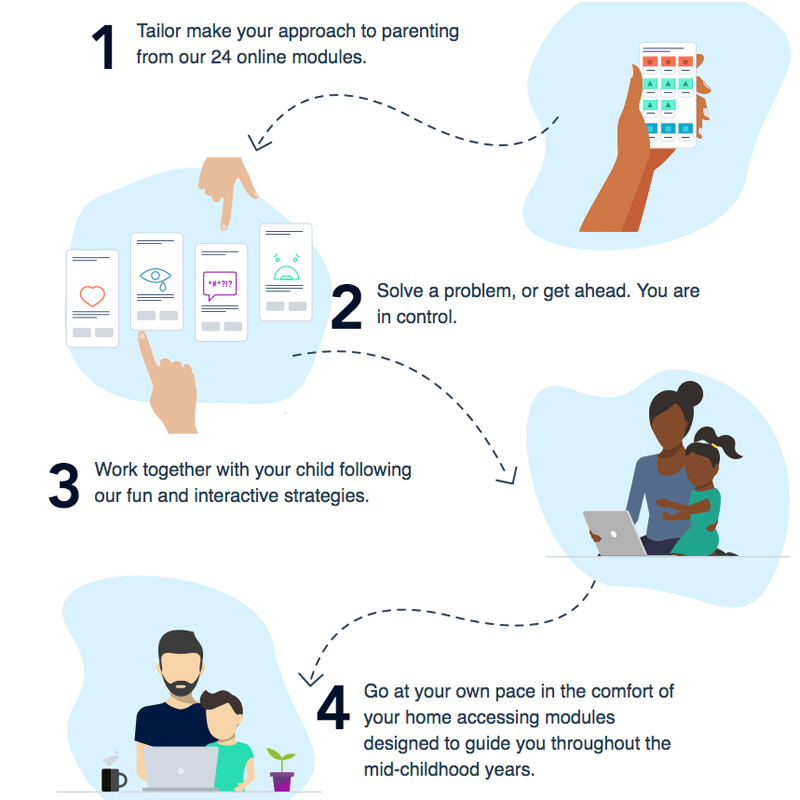Parenting tool builds good mental health from the age of four
Health & Medical
A team of psychologists has reverse engineered known mental health triggers and developed a program to protect children against depression, anxiety and bullying by teaching them lifelong skills.

Sign up to receive notifications about new stories in this category.
Thank you for subscribing to story notifications.

Most mental health conditions that present in adults can be traced back to flawed coping strategies developed as children, typically between the ages of four and eight. These skills are often then re-taught to adult patients as part of their therapy for a range of mental health issues.
Using a ‘prevention is better than cure’ strategy, a South Australian team has developed a website for parents to teach their children clinically proven skills first time around in a bid to stop mental health issues arising later in life.
The WeParent website launched last month in the United Kingdom and Australia with 24 modules across five categories: Emotions, Friendships & Social Skills, Independence, Positive Sense of Self and Sibling Rivalry. A five-module category on bullying will be added to the program in the coming weeks.
The mobile-friendly site, which aims to be a ‘psychologist in the pocket of parents’, has been developed by the team at Adelaide Psychological Services in the South Australian capital. It is a subscription-based service and costs £6 a month for UK users and AU$10 a month in Australia.
Lead researcher and WeParent co-founder Dr Don Tustin, a practising psychologist, said he sees many clients in their 40s who would not be experiencing issues now if they had learnt better coping skills between the ages of four and eight.

He said all the topics on the website had been chosen because they were well established among psychologists to be important in good mental health.
“The first four years of a child’s life is spent teaching them how to walk, talk and develop their motor skills but what a parent should then be doing is switching their attention and spending the next four years working on their emotional development skills,” Dr Tustin said.
“Most adult skills begin at the age of six but a lot of parents have the view that children are like plants – they just grow naturally – which is often not the case.”
The recent Thriving at Work report commissioned by the British Government found that poor mental health was costing the UK economy between £74 and £99 billion a year. In Australia, a Deakin University study estimated the cost of high-prevalence mental health conditions to be $12.8 billion a year.
Dr Tustin said in time he hoped WeParent would also prove to be a valuable tool in the family law and child protection sectors.
He said all modules on the website were designed with two client types in mind: families of a child with an identified issue that needs addressing; and parents who wanted to be proactive about raising well-balanced children who were less likely to be affected by mental health as adults.
“A lot of the literature available to parents is very black and white – either a child is healthy or they’ve got a disorder. However, there’s this group in the middle of kids with very distinct temperaments and I’m keen that we pitch at that level,” Dr Tustin said.
“This is not just for kids with problems, this is for every child on the planet – these are skills that everyone needs.”
“Bullies actually want to be leaders but they use very bad techniques and it’s good to sort them out when they are about six. It will also teach life skills to children on how to protect themselves from being bullied.”
Dr Tustin co-founded WeParent with his London-based son Nick Tustin and Nick’s partner Claire Biglands.
Nick Tustin is heading up sales while Biglands’ role is content development.
“Children are under more pressure now through things like social media than their parents’ generation were,” Biglands said.
“The stats in the UK really shocked me – something like 25 per cent of 13-year-old girls are now suffering with depression.”
“A lot of what we are trying to do is translate sound psychological principles into everyday practice that the average parent can understand and be confident they are doing the right thing.”

Tustin said WeParent was being initially aimed at the general population but would also specifically target schools, GPs, pharmacists and the National Health Service in the UK.
He said the focus was on the UK and Australia initially but was registered for a global audience and had already been viewed by potential users in almost 100 countries.
“The UK is well over 85 per cent of our views at this stage because that is where our focus is,” Tustin said.
“We would love to find distribution partners in new markets or with corporate Employee Assistance Programs.”
Tustin said his ultimate goal for WeParent was to work with the Heads Together initiative spearheaded by The Duke and Duchess of Cambridge and Prince Harry, which combines a campaign to tackle stigma and change the conversation on mental health with fundraising for a series of innovative new mental health services.
“On the launch of Heads Together Prince William said that he wants his children to talk about their emotions – he didn’t have the hows at the time, but the WeParent website provides the hows,” he said.
“The mood of England at the moment is that it wants to talk about its emotions and it wants to pass on these skills to its children but it doesn’t know how and WeParent has come along at the perfect time for that.”
Jump to next article



